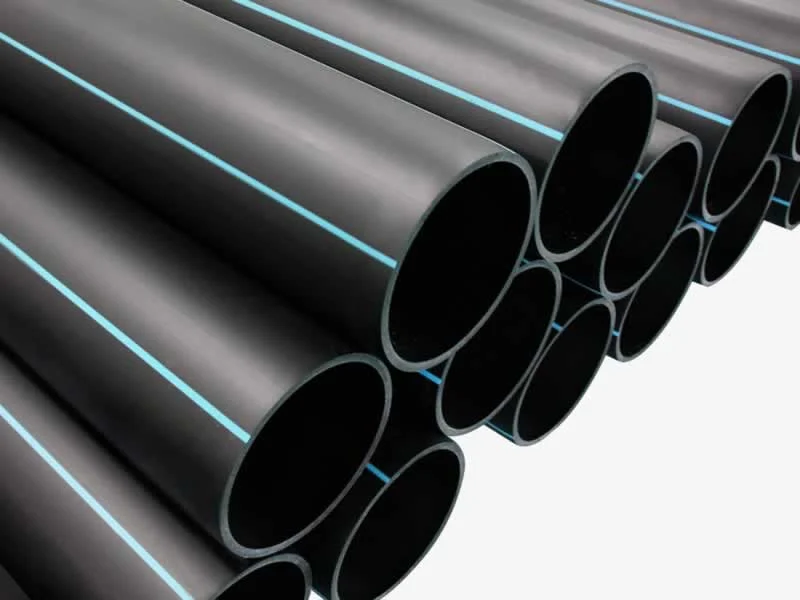PVC (Polyvinyl Chloride) water mains pipes are a preferred choice in Pakistan because they combine affordability, durability, and corrosion resistance. Unlike traditional metal pipes, PVC does not rust or scale when exposed to Pakistan’s varying water chemistry, which may include minerals, chlorination, and pH changes. This ensures a clean, safe water supply for decades. Its lightweight nature also makes installation faster and more cost-effective—an important factor in large-scale municipal and rural water supply projects across the country.
How does PVC compare to other materials for water mains in Pakistan?
When compared with galvanized iron (GI) or steel pipes, PVC stands out for its non-corrosive properties and smooth interior surface that prevents mineral buildup. Metal pipes, while strong, are prone to rusting, which can affect water taste and flow rate. HDPE is another competitor, offering flexibility and impact resistance, but PVC is generally more cost-effective for straight-line water mains with consistent operating conditions. The choice often comes down to project size, budget, and whether flexibility or rigidity is preferred.
[showdpt instance=”0″]
Is PVC safe for drinking water distribution?
Yes—PVC pipes designed for potable water meet national and international health standards. In Pakistan, certified PVC pipes for water mains are manufactured with non-toxic compounds and do not leach harmful chemicals into the supply. They also help maintain neutral taste, clarity, and quality of the water, which is crucial for public health. The smooth inner surface prevents biofilm buildup, reducing bacterial growth risks in the distribution system.
How long do PVC water mains pipes last in Pakistan?
A well-installed PVC water mains system can last 40–60 years or more under normal operating pressures. The lifespan is influenced by pipe quality, installation practices, and environmental factors like soil type and UV exposure. In Pakistan’s underground installations, PVC pipes are protected from sunlight and temperature extremes, which helps them reach their full service life. In above-ground applications, UV-stabilized PVC or protective cladding is recommended to prevent long-term degradation.
How does Pakistan’s climate affect PVC water mains performance?
Pakistan’s hot summers and mild winters are generally favorable for PVC pipes, especially when buried underground. The thermal expansion and contraction of PVC is predictable and manageable, provided installation includes proper allowances for movement. For outdoor or rooftop segments in hotter cities like Multan or Karachi, installers use UV-resistant grades or paint coatings to guard against long-term sun damage.
What are the main benefits of using PVC for water mains in Pakistan?
Key advantages include:
- Corrosion Resistance: No rust, scaling, or mineral buildup.
- Smooth Water Flow: Reduced friction means consistent water pressure.
- Lightweight and Easy to Install: Lowers transportation and labor costs.
- Cost-Effective: Lower total project costs compared to metals.
- Low Maintenance: Fewer repairs and replacements over the decades.
These benefits make PVC ideal for municipal, rural, and private water distribution networks.
How do pressure ratings affect PVC pipe selection?
PVC water mains in Pakistan are available in different pressure classes (PN ratings) ranging from PN6 to PN16. A higher PN rating means the pipe can withstand greater internal pressure. For urban mains where demand fluctuations and pumping cycles are frequent, PN10 or PN16 is often recommended. For low-pressure rural systems, PN6 or PN8 may be sufficient. Choosing the correct pressure rating prevents premature wear and extends service life.
What installation practices ensure long life for PVC water mains?
To get the best results:
- Follow correct trenching and bedding guidelines using clean, compacted sand or fine soil.
- Avoid dropping or over-bending pipes during handling.
- Use correct jointing methods, typically solvent cement or rubber ring joints for mains.
- Protect above-ground sections from direct sunlight with UV-stabilized materials.
- Ensure proper pressure testing before commissioning the system.
These steps help prevent leaks, joint failures, and early degradation.
How does PVC handle water chemistry in Pakistan?
PVC is resistant to a wide range of chemicals found in Pakistan’s water sources, whether from municipal treatment plants or borewells. It withstands chlorination levels used for disinfection and remains unaffected by mildly acidic or alkaline water. This chemical resilience means PVC can handle diverse supply conditions without corrosion or scaling, unlike many metals.
What are common applications for PVC water mains in Pakistan?
PVC mains are used in:
- Municipal water distribution networks
- Housing schemes and gated communities
- Industrial water supply lines
- Rural water schemes and irrigation
- Replacement of aging metal pipelines
Its versatility makes it a go-to material for both large-scale infrastructure projects and small private installations.
How cost-effective are PVC water mains for Pakistan’s projects?
PVC’s lower raw material cost, lighter weight, and easier handling lead to significant savings in installation. Contractors can transport more length in a single trip, reduce heavy machinery use, and complete projects faster. Over the life cycle, minimal maintenance means fewer operational expenses for municipalities and building owners.
FAQs
1) How long do PVC water mains last in Pakistan?
Typically 40–60 years when properly installed and maintained.
2) Are PVC pipes safe for drinking water?
Yes, certified potable-grade PVC pipes meet health safety standards.
3) Which pressure rating is best for municipal mains?
PN10 or PN16 is recommended for high-pressure urban networks.
4) Can PVC pipes corrode?
No, PVC is corrosion-resistant and does not rust or scale.
5) Are PVC water mains more affordable than metal pipes?
Yes, they have lower installation and maintenance costs, making them cost-effective over their lifespan.


